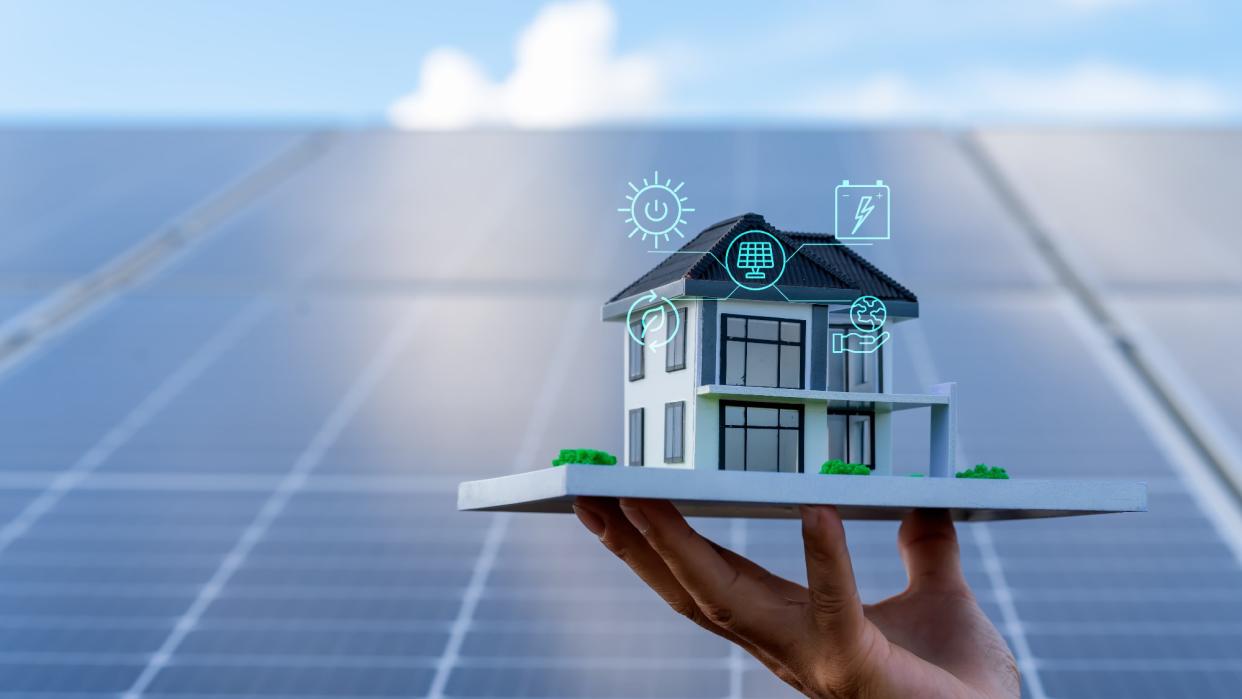What is a home energy audit and when is it worth getting one?

Bracing for sky-high utility bills each month? A home energy audit could offer some solutions. This evaluation of your home's efficiency can pinpoint where exactly it's wasting energy, whether through poorly sealed windows and doors or as a result of missing insulation. If you follow through on the work the audit suggests, you may "save hundreds or thousands of dollars," said Forbes, which might be especially appealing amid rising energy costs and "extreme weather becoming more and more common."
But actually doing the work on your home that the audit suggests will not necessarily be cheap — and getting a home energy audit in the first place isn't inexpensive, either.
What happens during a home energy audit?
"An energy audit will typically include an inspection of a home's insulation, heating and cooling systems, appliances, lights, windows, and other components that affect the amount of energy used (and wasted)," said home improvement website Bob Vila.
Basically, said Kiplinger, "a whole-house assessment recognizes that each of the components or systems in your home — the exterior shell, insulation, heating and cooling systems, ductwork and ventilation — work together, and recommends fixes to optimize efficiency and comfort."
When a professional energy auditor visits your home, they will "visually evaluate your home inside and out," looking over everything from your HVAC system and hot water heater to your appliances and attic insulation, said Kiplinger. They may do things like "a blower-door test, which measures the draftiness of your home, and thermal infrared scans to locate drafts and missing insulation."
Once the evaluation is complete, you will get a full report of the findings, as well as suggested solutions to address any issues identified.
Why get a home energy audit?
Perhaps one of the biggest motivators for a home audit is the potential long-term cost savings. To actually get those savings, keep in mind you will have to follow through on making the suggested fixes. But if you do, it's possible to "cut your energy usage and bills by as much as 25%," said Kiplinger, citing data from Home Performance With ENERGY STAR.
Making energy-efficient upgrades based on an audit's results also can "make your home look even more desirable on the housing market," said Angi, since "modern upgrades that cut down a home's carbon footprint or utility costs entice buyers."
Taking action based on a home energy audit also offers the chance to reduce your home's carbon footprint. Further, you'll be better prepared to make more environmentally-friendly upgrades down the road. For instance, once your current heating-and-cooling systems ultimately fail, "you'll be ready to replace them with higher-efficiency electric ones, such as a super-efficient heat pump," said Kiplinger. And if you have been "thinking about going solar, reducing your home's energy demand first will allow you to install a smaller, less expensive system."
How much does a home audit typically cost?
A home energy audit can run "between $200 and $700," said Angi, with a variety of factors impacting the cost.
For starters, the cost of your energy audit will depend on which audit level you get — there are three levels, ranging from "a baseline walkthrough" to "a highly in-depth audit that provides updated technology and renovation recommendations," said Angi.
If more complicated testing is done during the audit, that will also increase the cost, as will the addition of a Home Energy Rating System (HERS) certification, "an additional certification that verifies the energy efficiency of various home features and systems," said Forbes.
The size of your home will also have a bearing on cost, as will its location, since "depending on where your home is located, there may be different items that an auditor must check during a home energy audit," said Forbes.
Lastly, the current availability of rebates will also affect how much you ultimately pay. You may be able to find "various rebates and incentives available to help cover some or all of the cost of a home energy audit," said Forbes, and "some utility companies offer them free of charge, while others may have information on how to get a rebate or incentive after you've had one performed."

